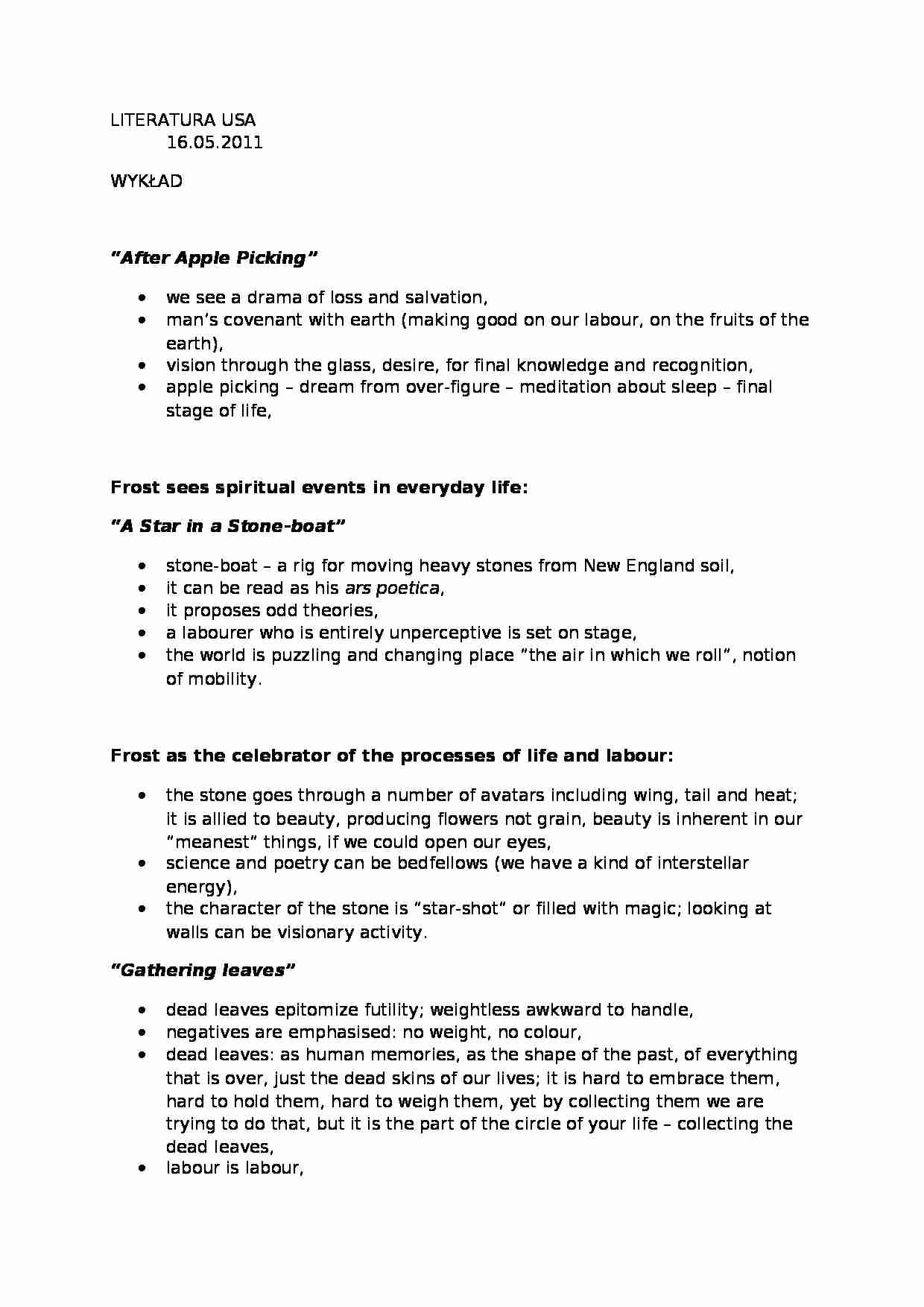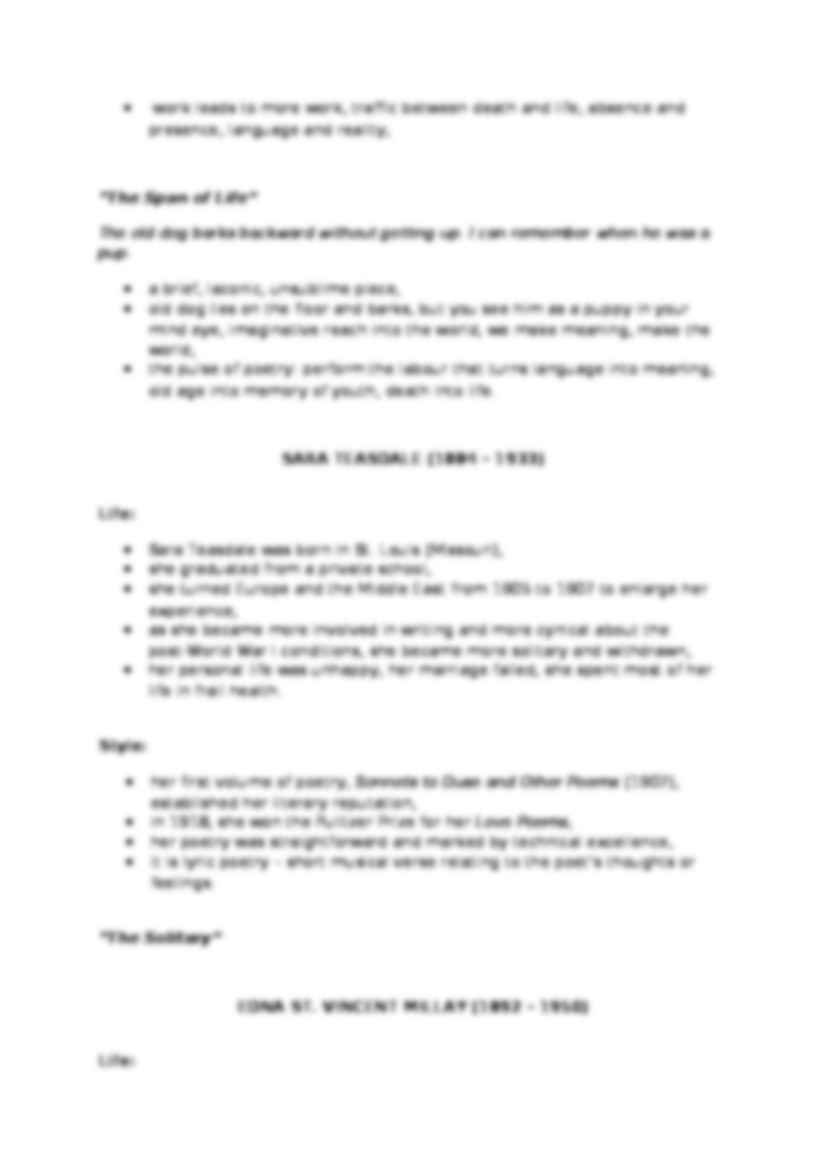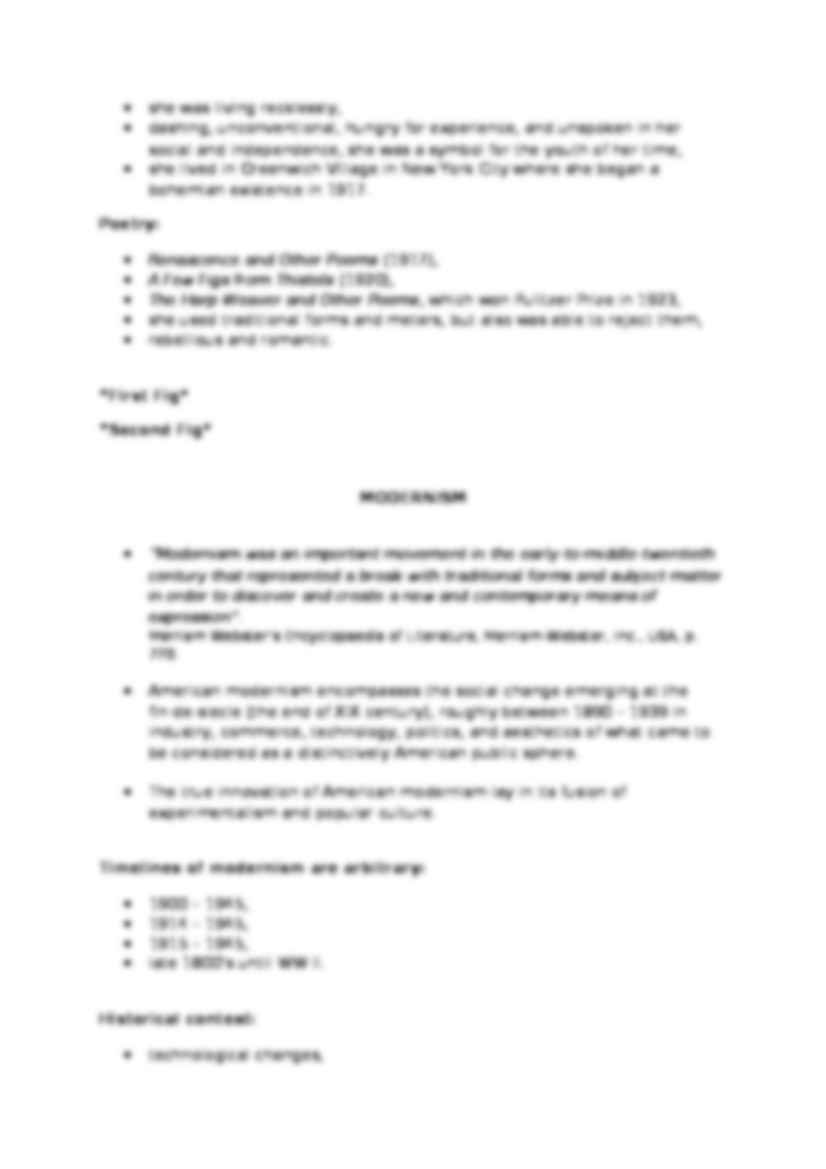LITERATURA USA 16.05.2011
WYKŁAD
“After Apple Picking”
we see a drama of loss and salvation,
man's covenant with earth (making good on our labour, on the fruits of the earth),
vision through the glass, desire, for final knowledge and recognition,
apple picking - dream from over-figure - meditation about sleep - final stage of life,
Frost sees spiritual events in everyday life:
“A Star in a Stone-boat”
stone-boat - a rig for moving heavy stones from New England soil,
it can be read as his ars poetica,
it proposes odd theories,
a labourer who is entirely unperceptive is set on stage,
the world is puzzling and changing place “the air in which we roll”, notion of mobility.
Frost as the celebrator of the processes of life and labour:
the stone goes through a number of avatars including wing, tail and heat; it is allied to beauty, producing flowers not grain, beauty is inherent in our “meanest” things, if we could open our eyes,
science and poetry can be bedfellows (we have a kind of interstellar energy),
the character of the stone is “star-shot” or filled with magic; looking at walls can be visionary activity.
“Gathering leaves”
dead leaves epitomize futility; weightless awkward to handle, negatives are emphasised: no weight, no colour,
dead leaves: as human memories, as the shape of the past, of everything that is over, just the dead skins of our lives; it is hard to embrace them, hard to hold them, hard to weigh them, yet by collecting them we are trying to do that, but it is the part of the circle of your life - collecting the dead leaves, labour is labour,
work leads to more work, traffic between death and life, absence and presence, language and reality, “The Span of Life”
The old dog barks backward without getting up. I can remember when he was a pup.
a brief, laconic, unsublime piece,
old dog lies on the floor and barks, but you see him as a puppy in your mind eye, imaginative reach into the world, we make meaning, make the world,
the pulse of poetry: perform the labour that turns language into meaning, old age into memory of youth, death into life.
SARA TEASDALE (1884 - 1933)
Life:
Sara Teasdale was born in St. Louis (Missouri),
she graduated from a private school,
she turned Europe and the Middle East from 1905 to 1907 to enlarge her experience, as she became more involved in writing and more cynical about the post-World War I conditions, she became more solitary and withdrawn,
(…)
… withdrawn,
her personal life was unhappy, her marriage failed, she spent most of her life in frail health.
Style:
her first volume of poetry, Sonnets to Duse and Other Poems (1907), established her literary reputation,
in 1918, she won the Pulitzer Prize for her Love Poems, her poetry was straightforward and marked by technical excellence,
it is lyric poetry - short musical verse relating to the poet's thoughts or feelings.
“The Solitary”
EDNA ST. VINCENT MILLAY (1892 - 1950)
Life:
she was living recklessly,
dashing, unconventional, hungry for experience, and unspoken in her social and independence, she was a symbol for the youth of her time, she lived in Greenwich Village in New York City where she began a bohemian existence in 1917.
Poetry:
Renascence and Other Poems (1917),
A Few Figs from Thistels…
…,
individualism,
intellectualism.
Experimentation:
claiming that previous writing was stereotyped and inadequate,
technical innovations, originality: deviation from the norm, or from usual reader expectations, seeking to create a unique style,
use of fragments, stream of consciousness, interior dialogue.
Anti-realism:
preference of allusion (often private) than description,
world seen through the writer's inner…
... zobacz całą notatkę






Komentarze użytkowników (0)